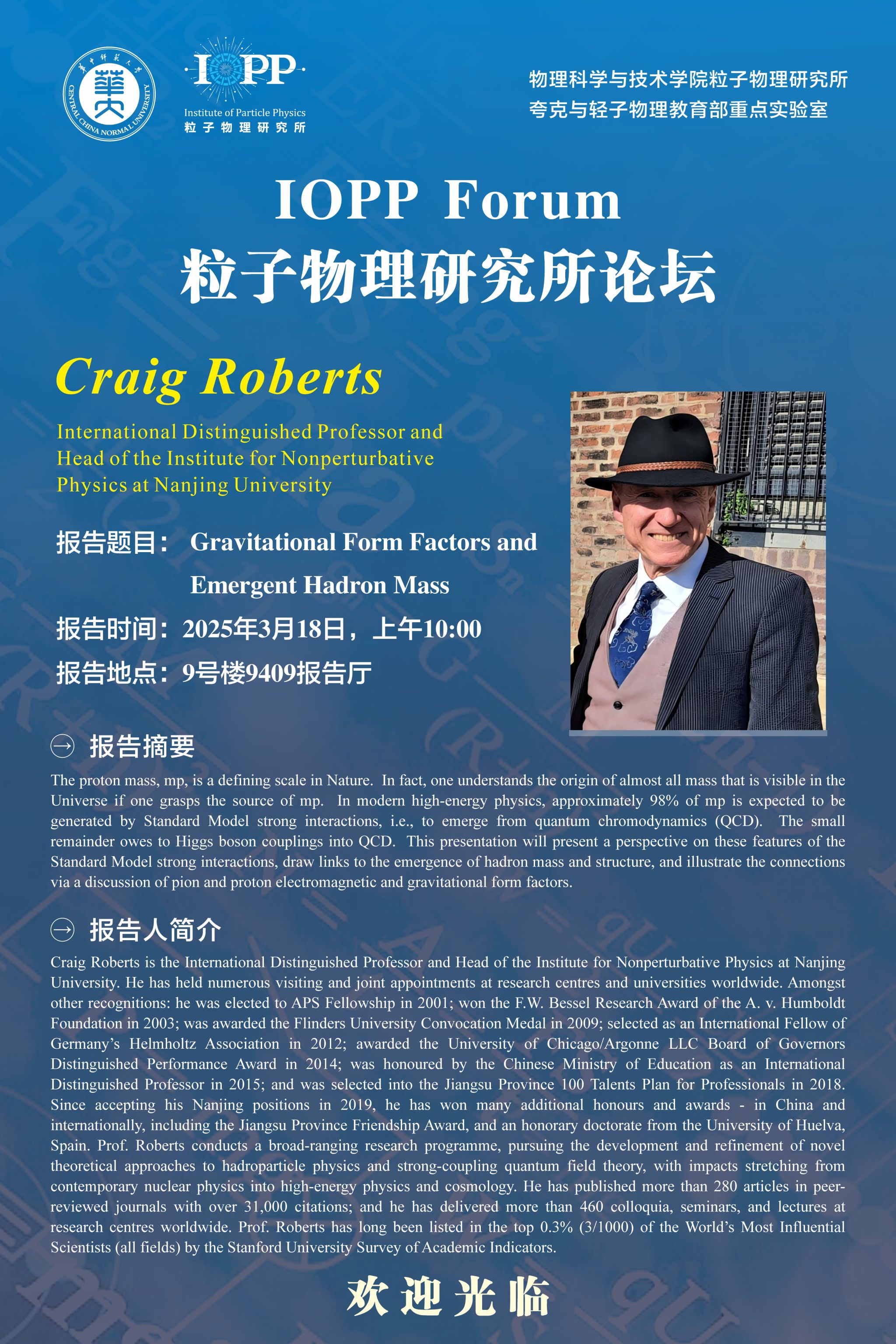报告题目: Gravitational Form Factors and Emergent Hadron Mass
报告时间:2025年3月18日,上午10:00
报告地点:9号楼9409报告厅
报告人:Craig Roberts
International Distinguished Professor and Head of the Institute for Nonperturbative Physics at Nanjing University
报告摘要:
The proton mass, mp, is a defining scale in Nature. In fact, one understands the origin of almost all mass that is visible in the Universe if one grasps the source of mp. In modern high-energy physics, approximately 98% of mp is expected to be generated by Standard Model strong interactions, i.e., to emerge from quantum chromodynamics (QCD). The small remainder owes to Higgs boson couplings into QCD. This presentation will present a perspective on these features of the Standard Model strong interactions, draw links to the emergence of hadron mass and structure, and illustrate the connections via a discussion of pion and proton electromagnetic and gravitational form factors.
报告人简介:
Craig Roberts is the International Distinguished Professor and Head of the Institute for Nonperturbative Physics at Nanjing University. He has held numerous visiting and joint appointments at research centres and universities worldwide. Amongst other recognitions: he was elected to APS Fellowship in 2001; won the F.W. Bessel Research Award of the A. v. Humboldt Foundation in 2003; was awarded the Flinders University Convocation Medal in 2009; selected as an International Fellow of Germany’s Helmholtz Association in 2012; awarded the University of Chicago/Argonne LLC Board of Governors Distinguished Performance Award in 2014; was honoured by the Chinese Ministry of Education as an International Distinguished Professor in 2015; and was selected into the Jiangsu Province 100 Talents Plan for Professionals in 2018. Since accepting his Nanjing positions in 2019, he has won many additional honours and awards - in China and internationally, including the Jiangsu Province Friendship Award, and an honorary doctorate from the University of Huelva, Spain. Prof. Roberts conducts a broad-ranging research programme, pursuing the development and refinement of novel theoretical approaches to hadroparticle physics and strong-coupling quantum field theory, with impacts stretching from contemporary nuclear physics into high-energy physics and cosmology. He has published more than 280 articles in peer-reviewed journals with over 31,000 citations; and he has delivered more than 460 colloquia, seminars, and lectures at research centres worldwide. Prof. Roberts has long been listed in the top 0.3% (3/1000) of the World’s Most Influential Scientists (all fields) by the Stanford University Survey of Academic Indicators.
